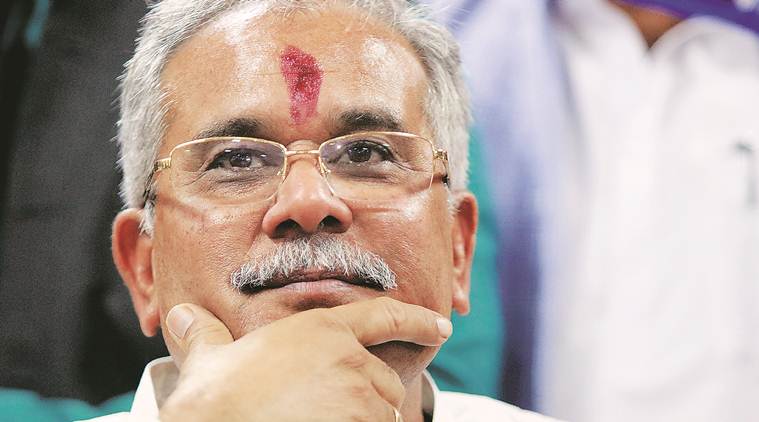In what can only be described as a controversial and irresponsible remark by the newly elected Chhattisgarh chief minister Bhupesh Baghel, he has declared that his government is desirous of engaging in talks in order to solve the Maoist issue in the state. He said that his government is not interested in “Figures of encounters and body count of Naxals” but it seeks to solve the issue by engaging in a dialogue with all stakeholders, including the affected tribal population. It is flummoxing how the newly elected chief minister Baghel is trying to suggest that the government engages in talks with those whose only objective is to overthrow the democratic set-up of India.
Baghel further said, “Congress lost its frontline leaders in a deadly Maoist attack (in May 2013). Many innocent jawans, local tribes and journalists have also lost their lives to Maoist insurgency over the years. If this problem was to be solved by blazing guns, it would have been solved during Raman Singh’s 15-year rule. The policy of bullet-for-bullet has failed miserably and it’s time to give a new thought to this issue.” It seems that either Baghel has not understood the Naxal situation completely or he is just trying to politicize a serious issue. The Naxal issue is a complex issue and it is unfair to accept that it would have been uprooted in 15 years by the Raman Singh government and that too when there was an incompetent UPA government at the helm of affairs at the centre. However, the previous dispensation was able to achieve several breakthroughs and the Naxals no longer enjoy the kind of stronghold that they once used to.
Probably, the Chhattisgarh Chief Minister Bhupesh Baghel did not realise that the naxals are now on the verge of extinction. With a state of encounters and abject surrenders by a number of naxals, naxalism is no longer as influential as it used to be. Bhupesh Baghel is trying to claim that deployment of forces and intensifying encounters has not been of much help in this issue. However, the proactive approach of the forces is the reason why naxalism seems to be on the verge of extinction. The aggressive approach of not allowing the naxals to operate with impunity and inflicting heavy damage on the naxals coupled with rampant development in the naxal affected areas has brought about a welcome transformation.
At a time when the naxals are feeling the heat and losing steam, Bhupesh Baghel has made an irresponsible and seemingly uninformed remark by suggesting that his government will change the approach of tackling the naxal issue. Any attempt to bring down the intensity of the encounters and operations against the naxals or to engage in a dialogue with the naxals will give them a chance to regroup and revitalise themselves. In such a situation, the naxals might be able to become effective all over again even after being pushed to the wall.
It was apparent in the past that the Congress was sympathetic towards the urban naxals. During an election rally in Chhattisgarh, Prime Minister Modi had said, “Urban Maoists live in air-conditioned surroundings, move around in big cars and their children study abroad, but they ruin the lives of our poor Adivasi youth here through remote control. Why is Congress supporting these Urban Maoists?” thereby suggesting that the Congress has a pro-Naxal approach. It is plausible that the Congress is now proposing to go soft on the Naxals active in the state of Chhattisgarh only because of the pressure of urban Naxals of whom the Congress has been an active supporter.
